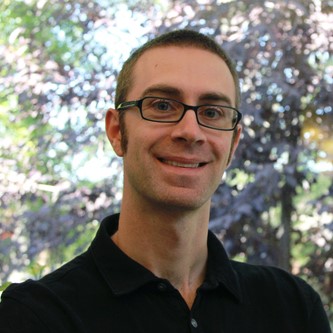Acceptance and Commitment Therapy for Obsessive Compulsive and Anxiety Disorders in Children and Adolescents


Sunday, 13 June 2021 - 2:00 p.m. to 6:00 p.m. UTC/GMT +2 (Central European Summer Time)
This workshop combines two professionals whose careers have largely focused on the use of ACT to treat obsessive compulsive and anxiety disorders. Dr. Twohig is a US citizen and Dr. Zurita Ona is Bolivian but works and resides in the USA. Dr. Twohig has conducted his work within a research setting with additional applied work in a university clinic. Dr. Zurita Ona’s works has occurred in a private clinic with related scholarship activities. Both work with children, adolescents, and adults. Additionally, they have been collaborating professionally for the past two years and have a common conceptualization of obsessive compulsive and anxiety disorders and their treatment.
Obsessive compulsive and anxiety disorders include: obsessive compulsive disorder, trichotillomania, social phobia, panic disorder, separation anxiety disorder, and phobias. While the literature on ACT for obsessive compulsive and anxiety disorders in children and adolescents lags behind the data for adults, there has been a notable amount of work conducted supporting its effectiveness. These data show that a moderately unified ACT protocol is effective for a variety of presentations of obsessive compulsive and anxiety disorders. Only moderate adjustments need to be made for different clinical presentations.
In this two-day workshop we will first update the attendees on the research in this area. There are a handful or large randomized trials and smaller single subject designs using ACT for children and adolescents with obsessive compulsive and anxiety disorders. Next, we will present the overarching ACT conceptualization of obsessive compulsive and anxiety disorders. We will present the conceptual and procedural adjustments that would need to occur for each general presentation. This background information would likely take one-fourth of the training time. The remaining training time will showcase this work for children and adolescents. The audience will learn to facilitate exposures, monitor and facilitate processes of change within exposures, teach and track outcomes that are consistent with the ACT model. A unique behavioral intervention, the Choice Point, will be presented as a formulation and intervention to augment the impact of exposure sessions. We will teach the procedures didactically, with video, and role play.
About Michael P. Twohig, Ph.D.:
Michael P. Twohig, Ph.D. is a licensed psychologist in the state of Utah and a Professor of Psychology at Utah State University. He received his B.A. and M.S. from the University of Wisconsin-Milwaukee, his Ph.D. from the University of Nevada, Reno, and completed his clinical internship at the University of British Columbia Hospital. He is past-President of the Association of Contextual Behavioral Science, the organization most associated with Acceptance and Commitment Therapy (ACT). His research focuses on the use of ACT across a variety of clinical presentations with an emphasis on obsessive compulsive and related disorders. He has published over 100 peer-reviewed articles and two books: An ACT-Enhanced Behavior Therapy approach to the Treatment of Trichotillomania (with Woods) and ACT Verbatim for Depression and Anxiety (with Hayes). His research has been funded through multiple sources including the National Institute of Mental Health.
About Patricia Zurita Ona, Psy.D.:
Dr. Zurita Ona, Dr. Z, is a Licensed Clinical Psychologist in California. Her clinical work started first as school psychologist and then as a clinical psychologist. She has significant experience working with children, adolescents, and adults with OCD, trauma, anxiety, and emotional regulation problems. . Dr. Z is the founder of the East Bay Behavior Therapy Center, a boutique therapy practice, where she runs an intensive outpatient program integrating Acceptance and Commitment Therapy (ACT) and Exposure Response Prevention (ERP) to support clients getting stuck from obsessions, figure out what they care about, and do stuff that matters to them.
Dr. Z attends local, national, and international conferences on a regular basis in order to keep up with current clinical research and deliver up-to-date therapy services to her clients. In addition to her doctoral training, Dr. Z has nominated as a Fellow of the Association of Contextual Behavioral Science; she's a graduate of the International OCD foundation Behavior Therapy Training Institute (BTTI) for the treatment of pediatric OCD and adult OCD; her clinical work is primarily based on exposure and Response Prevention, the recognized front-line treatment for OCD, anxiety and related condition disorders. Dr. Z is intensively trained in Dialectical Behavior Therapy (DBT). Over the last 10 years, Dr. Z has been learning, practicing, and teaching Acceptance and Commitment Therapy (ACT).
Learning Objectives:
Following this workshop participants will be able to:
- Learn the diagnostic differences between obsessive compulsive and anxiety disorders
- Learn the research on ACT for obsessive compulsive and anxiety disorders in children and adolescents
- Learn to conceptualize obsessive compulsive and anxiety disorders from an ACT standpoint
- Learn how to conduct exposures for obsessive compulsive and anxiety disorders from an ACT model
- Identify the ACT core processes in regard to the “choice point model”
- Learn how to track outcomes when working with these clinical issues
Target Audience: Beginner, Intermediate, Advanced, Clinical, Research
Components: Conceptual analysis, Literature review, Original data, Experiential exercises, Didactic presentation, Case presentation, Role play
Package Includes: A general certificate of attendance
